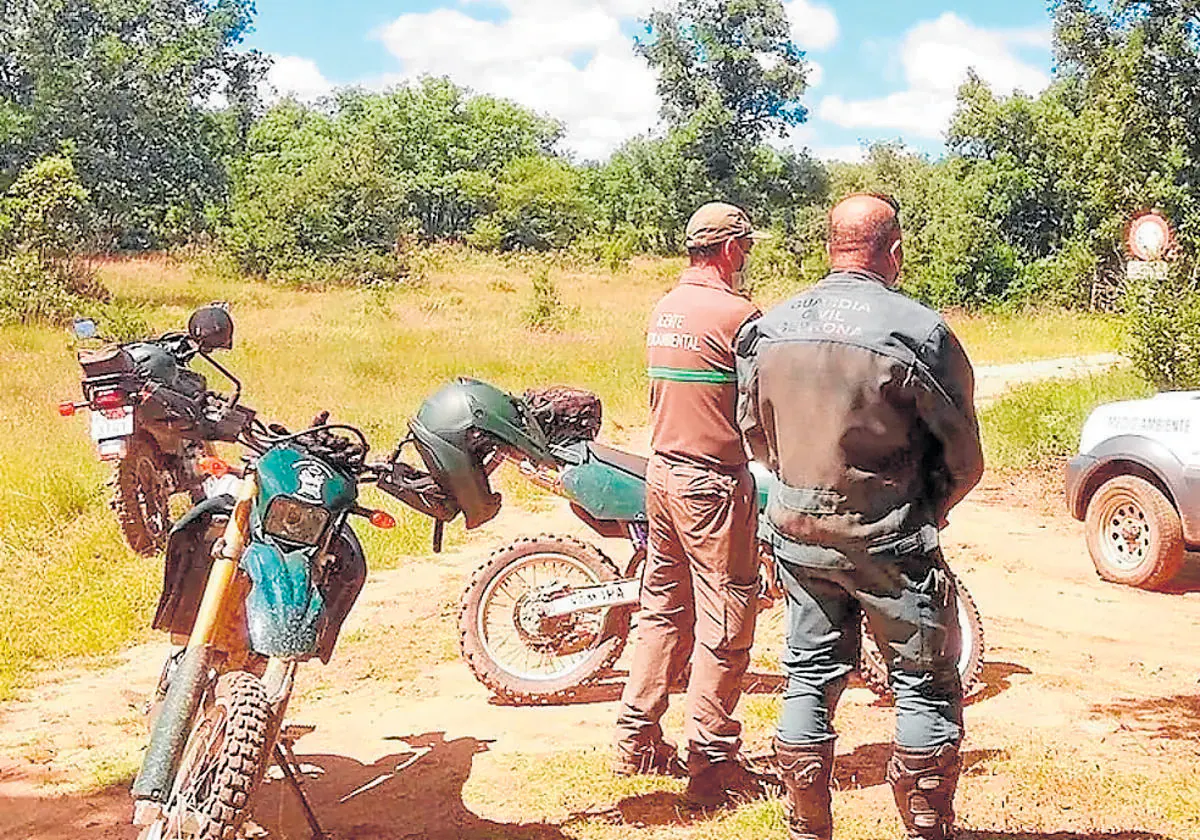Spain’s specialised guardians of the natural environment
Seprona. ·
The Guardia Civil unit, which was the first of its kind in Europe, works with all European Union states as well as the UK and Latin American countries, among othersJennie Rhodes
Friday, 15 November 2024, 13:15
The responsibilities of Spain’s Guardia Civil are wide-ranging. One area they specialise in, to which SUR in English often refers, especially when reporting on forest fires or environmental crimes, is Seprona – its nature protection unit.
The Guardia Civil defines itself broadly as a “public security force with military status”. When it was established in 1876, King Alfonso XII designated it as the “kingdom’s forest service”.
Seprona’s three core activities are: prevention, investigation and production of intelligence of environmental crimes.
The unit is responsible for the tracking of illegal trade in wildlife and waste, identifying cases of animal abuse and hunting activities as well as tackling and investigating wild fires, among a long list of other environment-related activities.
In a nutshell, Seprona is responsible for dealing with “the effects on environmental and human health” according to information published by the unit in English.
Officers
There are around 1,800 specialist Seprona officers working in different units and patrols around Spain, of whom 71 work in the central investigations unit both on a national and international level.
Each of the country’s provinces also has officers that provide urban patrols within towns and cities as well as agents who operate in national parks.
Anyone caught up in the purchase of illegal homes, especially in the Axarquía, will have had some dealings with the Guardia Civil as one of their remits is urban development and the correct use of land.
Officers can be identified by their dark green uniform (like other areas of the Guardia Civil) and have a specially designated fleet of vehicles, including over 500 off-road vehicles, around 1,150 motor and trail bikes, over 10 quads and more than 20 boats and jetskis.
However, they are not the people to contact in the case of finding an endangered species of animal in trouble in Spain. This in fact falls with Crea – the recuperation centre for endangered species, although in the first instance the Local Police should be contacted.
They in turn contact Crea and either take the animal themselves, or Crea will send an expert to collect the animal. Malaga province’s Crea centre is located in the Montes de Málaga.
Seprona was the first of its kind in Europe and other countries have started to copy the structure. It has been going as a unit for 32 years and works with all 27 European Union member states and 10 non-EU countries, including the UK.
Seprona works closely with Europol, Interpol and the Latin American Jaguar Network, which has officers who are specialised in environmental crimes and work between Latin America and the EU.
Recent interventions
According to information produced by Seprona, to which SURin English has had access, at the time of publication the unit had arrested some 5,320 people and investigated 7,358 environmental crimes in its 32 years of existence.
Recent examples of Seprona’s intervention include the case of a multi-million-euro fraud operation involving the resale of tyres sent for safe waste disposal as being unfit for use as well as the ongoing investigation into the number of illegal wells in the Axarquía which came to light as restrictions were introduced, particularly for the area’s farmers, due to the extreme drought.
Seprona officers were called to the scene of the death of a 91-year-old man after he was attacked by a deer that was being kept as a pet on the victim’s farm in Granada in October this year.
In the same month, Seprona was also involved in a major international operation against food fraud with arrests across Spain and Europe when criminals were reselling inferior quality oils as extra virgin olive oils or relabelling products that had expired.
The remits of the Local and National Police and the Guardia Civil
Many people movng to, or even visiting Spain, may be struckstruck by how many different types of police forces there are in the country. On any given day it is quite common to see Local Police, Guardia Civil and National Police vehicles on the streets. The general rule is that the Local Police are responsible for matters directly concerning villages, towns and cities and can often be seen providing road safety at school as well as issuing fines for illegally parked cars or indeed dog-walkers who are caught not cleaning up after their pet.
Anyone who has had to renew identification, applied for Spanish citizenship or acquired a foreign identity card (tarjeta de identidad de extranjero or TIE), especially Britons post Brexit, will have had to go to a National Police station. They also cover crime in larger urban centres.
The Guardia Civil are often seen as ‘traffic police’ and can be found patrolling main trunk roads. However, their remit is much wider. They also investigate crime in more rural areas.
